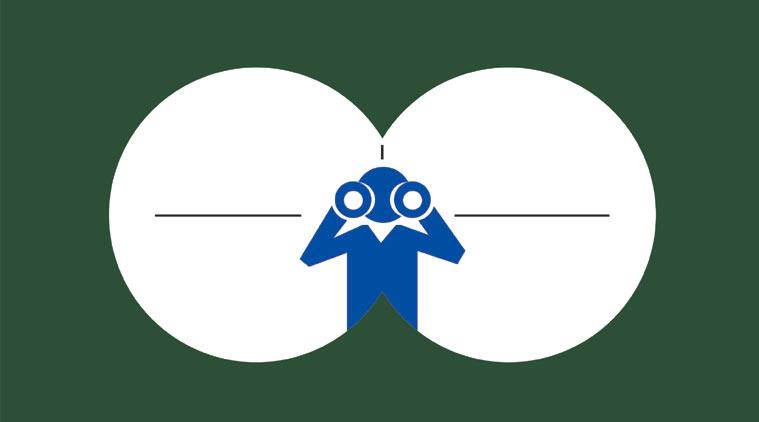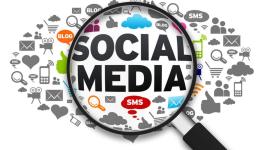Anti Social Media: How Facebook Disconnects Us and Undermines Democracy

Facebook is the most pervasive surveillance system in the history of the world. More than two billion people and millions of organizations, companies, and political movements offer up detailed accounts of passions, preferences, predilections, and plans to one commercial service. In addition, Facebook tracks all of the connections and interactions among these people and groups, predicting future connections and guiding future interactions. It even compiles contact information on those who do not have a Facebook account.
Facebook exposes us to three major forms of surveillance. We might think of them as three perches or viewpoints. Commercial and political entities are able to exploit the targeting and predictive power of Facebook through its advertising system. Through what we reveal on our profiles, other Facebook users can watch and track us as we build or break relationships with others, move around, recommend and comment on various posts, and express our opinions and preferences. And governments use Facebook to spy on citizens or anyone they consider suspicious, either by establishing Facebook accounts that appear to be those of friends or allies or by breaking through Facebook security to gather data directly.
Facebook itself conducts commercial surveillance of its users on behalf of its advertising clients. Facebook has no incentive to offer any third-party access to the data that it uses to drive user-generated posts and direct advertisements. The commercial value of Facebook lies in its complete control of this priceless account of human behavior. But the interface that Facebook provides to both advertisers and those who run Facebook pages allows them to learn significant amounts about their audiences in general and track the level of response their posts and advertisements generate. To profile users for precise targeting, Facebook uses much of the data that users offer: biographical data, records of interactions with others, the text of their posts, location (through Facebook apps on mobile phones equipped with GPS features), and the “social graph”—a map of the relationships among items on Facebook (photos, videos, news stories, advertisements, groups, pages, and the profiles of its 2.2 billion users). This combination of information allows Facebook to predict user interest and behavior based on what other people with similar attributes and similar connections want, think, or do.
Beyond the data that Facebook gathers from its own core services (Facebook, Messenger, Instagram, WhatsApp, etc.), it allows other firms to connect to Facebook directly through a service called Open Graph. Open Graph is how the music service Spotify interacts with Facebook, using Facebook user names and passwords to enroll and log in to the service. This makes Spotify “social,” in the sense that the music one user listens to via Spotify becomes available to her Friends who are also using Spotify, and those Friends’ music habits are available to others as well. This creates a mesh of interests that can prompt discovery or recommendations among like-minded music fans. To Spotify, this service amplifies its ability to find new users and maintain established users. To Facebook, it means that more interactions—even outside of Facebook—become part of the larger social graph and thus useful for profiling and targeting. Facebook, through its Open Graph partnerships and the use of tracking cookies that it implants in users’ web browsers, is able to gather immense amounts of personal data from people who hardly ever log in to their Facebook accounts. Basically, there is no way to opt out fully from Facebook’s ability to track you.
This form of single-firm commercial surveillance seems almost harmless by itself. Facebook lacks a police force, so it can’t abuse its power in a way that injures people or denies liberty or property. If it profiles someone inaccurately and targets advertisements improperly, the company just will not generate revenue for that action. When all those data serve Facebook well, leaders of Facebook argue, it provides a more enjoyable and relevant experience to users. No cat owner wants to see a barrage of ads for dog food. No vegetarian wants to see ads for hamburgers. And we generally prefer seeing posts from the people whom we like and think like. There are problems with this sort of filtering, as we will see in Chapter 3. But none of those problems quite qualifies as an immediate risk or danger to users. However, Facebook gathers and deploys much of this information without our knowledge or consent. Facebook does not offer us a full view of how our activities are used. And Facebook does not offer us clear and easy ways to exempt ourselves from this pervasive surveillance. Users might generally understand that the company retains and uses the specific attributes that they post to their profile. But most users certainly do not have a full picture of the depth and breadth of Facebook’s activities. Users rarely are informed, for instance, that Facebook buys troves of credit-card purchasing and profile data from the large data marketing firms. A user must poke around or search Facebook’s help site to discover this fact. This mix of the information we offer to Facebook, Facebook’s ability to track us on the web and in the real world, and the commercial credit data it purchases empowers Facebook and disempowers us.
The chief danger from the Facebook commercial surveillance system lies in the concentration of power. No other company in the world—with the possible exception of Google—can even consider building a set of personalized dossiers as rich as Facebook’s. These data reinforce Facebook’s commercial dominance in the advertising business (again, mostly shared with Google, which has different ways of tracking and targeting content and advertising but generates many of the same risks and problems). The very fact that we cannot expect another digital media company to generate that much data from that many people and that many interactions means that—barring strong regulation—serious competitors to Facebook will be rare or non-existent in the near future.
But there are other dangers that come with Facebook having and holding all of this information on us. They come from the two other surveillance positions: peers and states. Many common behaviors of Facebook Friends sever our images or information from our control, regardless of how careful any individual is with privacy settings. Other Facebook users can act maliciously, especially when relationships degrade. And other Facebook users might be more promiscuous in their habits of tagging photographs of people who would rather not be identified beyond a tight circle of known Friends. Beyond this, Facebook profiles can be abused for the purposes of public shaming, harassing, or exposing personal information to outsiders.
What we put on Facebook is often carefully selected and managed, a constant if exhausting exercise in self-promotion and self-presentation. That means that Facebook profiles are rarely if ever full and accurate portrayals of our lives and personalities. That’s one reason Facebook goes to great lengths to monitor and record our actual activities and movements. We might want everyone to think we are vegan, but we might slip up and eat at Burger King in a moment of weakness. We should not have to reveal such moments to our Friends. But Facebook ensures that it knows us better than our friends and family members do. Still, the fact that Facebook profiles are inaccurate or inauthentic portraits of complex human beings means that actions and reactions by others peering at them can generate unfair or harmful reactions.
Jokes can be misread. Declarations of loosely held opinions could blow up into misreadings that cause social conflicts. Facebook was designed to limit our interactions and exposure to the circle of those we trust. It no longer functions that way.
Despite the promises Facebook makes to its users, there are many ways that it ensures users lack control over their information. Privacy journalist Kashmir Hill noticed in 2017 a curious phenomenon. Facebook was recommending that she “Friend” people she hardly knew or did not even know of.
She asked her readers if they had had similar experiences, especially any that led to awkward or possibly harmful encounters via Facebook. Social workers and therapists reported being connected with clients despite never exchanging private information with them. A sperm donor was urged to connect to the child of a couple to whom he had donated sperm, despite the parents not wanting the donor to have contact with that child. Hill discovered that a Facebook feature called People You Might Know urged people to upload the address books from their computers or phones.
Siva Vaidhyanathan is the Robertson Professor of Media Studies and the Director of the Center for Media and Citizenship at the University of Virginia. A former professional journalist, he writes on technology, law and society. He appears frequently on television and radio around the world and has been featured in numerous documentary films and was portrayed in the off-Broadway play, Privacy.
Written by Siva Vaidhyanathan, Anti-Social Media: How Facebook Disconnects Us and Undermines Democracy was published by Oxford University Press in June, 2018. This extract has been republished here with permission from the publisher..
Disclaimer: The views expressed in this article are the writer's own, and do not necessarily represent the views of the Newsclick.
Get the latest reports & analysis with people's perspective on Protests, movements & deep analytical videos, discussions of the current affairs in your Telegram app. Subscribe to NewsClick's Telegram channel & get Real-Time updates on stories, as they get published on our website.
























